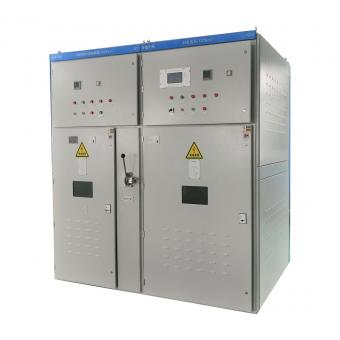Outdoor Electrical Panels Manufacturers in Indiranagar

Contact : +91 99005 84314
Outdoor electrical panels, also known as outdoor circuit breaker panels or outdoor service panels, are essential components of an electrical system designed to manage and distribute electrical power to various circuits and devices outside of a building. They serve a crucial role in residential, commercial, and industrial settings by ensuring that electricity is safely and effectively distributed. Here’s a detailed overview of outdoor electrical panels, including their features, installation considerations, and maintenance.
Features and Functions
-
Enclosure: Outdoor electrical panels are housed in weatherproof enclosures to protect the electrical components from environmental elements such as rain, snow, and extreme temperatures. These enclosures are typically made from materials like metal or durable plastic and are designed to meet specific weather-resistance standards.
-
Circuit Breakers: The panel includes circuit breakers, which are safety devices designed to protect electrical circuits from overloads and short circuits. When a fault occurs, the circuit breaker trips, cutting off the power supply to prevent damage and reduce the risk of fire.
-
Main Disconnect: Many outdoor panels feature a main disconnect switch that allows the entire panel to be shut off. This is essential for maintenance and emergency situations, as it provides a quick way to isolate the electrical system.
-
Bus Bars: Inside the panel, bus bars distribute electrical power to the individual circuit breakers. They are made of conductive materials such as copper or aluminum and are crucial for efficient power distribution.
-
GFCI Protection: For areas exposed to moisture, outdoor panels often include Ground Fault Circuit Interrupter (GFCI) breakers. These provide additional safety by detecting ground faults and quickly cutting off power to prevent electrical shocks.
Installation Considerations
-
Location: Proper placement is critical for outdoor panels. They should be installed in a location that is easily accessible for maintenance but away from direct exposure to harsh weather conditions. Additionally, panels should be mounted at an appropriate height to ensure safety and compliance with local codes.
-
Compliance with Codes: Installation must adhere to local electrical codes and regulations. This includes ensuring that the panel is properly grounded, and that all connections are secure and meet code requirements.
-
Professional Installation: Due to the complexity and safety considerations involved, outdoor electrical panels should be installed by a licensed electrician. They will ensure that the installation meets all safety standards and is compliant with local building codes.
Maintenance
-
Regular Inspections: Periodic inspections are essential to ensure that the panel remains in good working condition. This includes checking for signs of wear and tear, rust, or damage to the enclosure.
-
Cleaning: The exterior of the panel should be kept clean and free from debris. However, care should be taken not to use water or harsh chemicals that could damage the panel.
-
Testing: Circuit breakers and GFCI breakers should be tested regularly to ensure they function correctly. Tripping tests can be performed to check the response of the breakers.
-
Addressing Issues: Any issues, such as tripped breakers, signs of overheating, or electrical smells, should be addressed immediately. Prompt repair or replacement of faulty components is crucial to maintaining safety.
Conclusion
Outdoor electrical panels play a vital role in managing and distributing electrical power in environments exposed to the elements. Their design, including weatherproof enclosures and circuit protection features, ensures that they can handle the demands of outdoor electrical systems while providing safety and reliability. Proper installation and maintenance are essential to ensuring that these panels continue to function effectively and safely, protecting both people and property from electrical hazards.
.jpg)